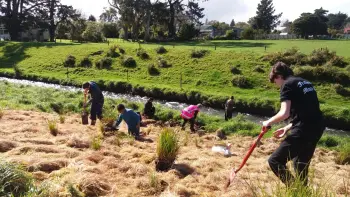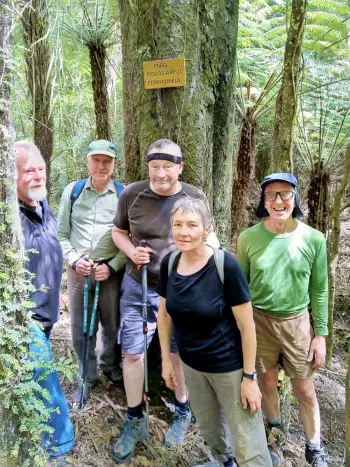

Sustainable Wairarapa has played an important part in many environmental initiatives over the last two decades.
The organisation had its beginnings at a public meeting, in the West Taratahi Community Hall in 1999, organised by Matt and Krysia Grant, then living in Featherston. Chris Peterson and Helen Dew were among those attending. The resulting organisation was briefly called the Wairarapa Green Network, but changed to Sustainable Wairarapa to emphasise its non-political role.

Sustainable Wairarapa is a group of sustainability minded volunteers with a goal to “do all the things we can do with the skills we have available,” says Petersen. “It’s a loose arrangement of people with a fundamental common interest. We don’t get any ongoing funding, but we now have almost 20 years of being a conduit with the community on environmental issues. We work with the councils, iwi, the community, the Department of Conservation, farmers and other groups, with a focus on solving environmental problems and finding solutions. We now have a great track record with stakeholders in local, regional and central government of being reliable partners who can deliver.”
Sustainable Wairarapa have undertaken a range of projects addressing many issues. These include:

In the past, the organisation did not have the funding to be directly involved in biodiversity projects, but this changed in mid-2020 when the group was allocated funding from the Department of Conservation’s Community Fund for a number of projects. These include surveys of moths and beetles to enable comparisons over time on the effects of fragmentation and genetic diversity, and lizard surveys at Castlepoint Scenic Reserve and Ocean Beach/Onoke Spit.
Sustainable Wairarapa’s primary concern is the issue of sustainability – the holistic integration of the social, economic, cultural and environmental elements that underpin everyone’s lives.
"There’s been enough talking, it is time now for deciding what we can do and doing what we decide."
Another Sustainable Wairarapa stalwart Ray Stewart notes: “Action is the hardest step since this is where current ideologies, beliefs, value systems, economic theory and ecological constraints ultimately conflict.” To which Peterson adds: “There’s been enough talking, it is time now for deciding what we can do and doing what we decide.”